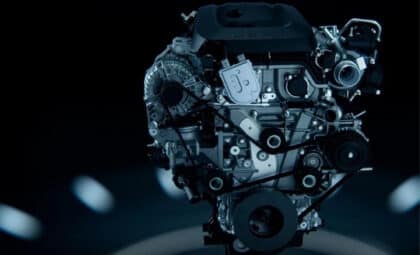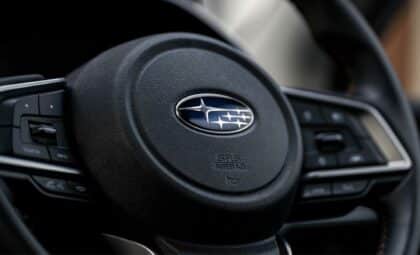
Whether you live in an area that’s prone to drought or simply want to help conserve local water supplies, you might consider washing your car with rainwater. But is it safe? Here’s a brief guide to help you determine if and how to go about washing your vehicle with collected rainwater.
Smart Maintenance: Schedule your car’s seasonal service appointment
Weighing the pros and cons

Photo: ArvinBhagoo via Pixabay
Using rainwater to clean your car has some advantages as well as caveats. Filtered rainwater doesn’t contain the contaminants, minerals, and salts that tap water does, according to Rainwater Tanks Direct. This means that when you wash your car with rainwater, you won’t have to worry about water spots or stains due to impurities in the water.
However, not all rainwater is clean, as Planet Green’s Eric Leech shares with How Stuff Works. If you live in a congested area with high smog and pollution levels, there’s a greater chance that precipitation will come in the form of acid rain. This type of rainwater can damage your car’s exterior paint coat.
According to the EPA, the sulfur dioxide and nitrogen oxides in the rainwater can linger on a car’s exterior. When sunlight reacts with these contaminants, it can cause the paint to deteriorate.
Test the rainwater’s purity
If you’re not sure if your location’s rainwater is clean enough to use, without some type of filtration system, there’s an easy way to test it. The next time it rains, catch a few raindrops in a small zip-close bag, as Rainwater Tanks Direct suggests.
Once the drops of water have dried, inspect the bag for any stains, which could indicate contaminants. If there are stains, this could indicate that your rainwater collection system needs more filters or a better quality filter before the water is clean enough to use on your 015=-[car.
Don’t have time to harvest rain for your next at-home car wash? Check out this article on how you can prevent and remove water spots on your vehicle’s exterior. Then discover how a touchless car wash works.
Something Shiny: Find a new vehicle for the new year
Whitney Russell is a current resident of Dayton, though her spirit can be found beach-bumming in Puerto Rico (the land of her half-Puerto Rican heritage). When not adventuring through the exciting world of car news, she can be found hiking with her husband and their two dogs, motorcycling, visiting nephews and nieces, discovering new memes, thrifting, decorating, crafting, woodburning, researching random things, and escaping into a great movie. See more articles by Whitney.










